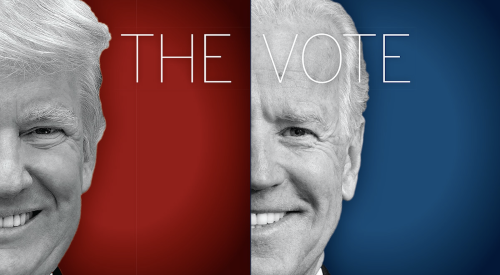|
This Classical Craftsman room set uses thicker moldings and trim to create a bold look.
|
A political fight brewing in Florida looks much like the battles the housing industry and others fought and won in Arizona and Colorado in 2000. No-growth forces will not go away, but this time they look more dangerous.
A petition drive aims to add to the November ballot a Florida constitutional amendment that would take all final land-use decisions out of the hands of elected officials (and the regulatory agencies and planners that are now part of the process) and put them in the hands of the electorate. The obvious intent, only slightly veiled, is to stop growth in its tracks.
As proposed, the amendment would require voters to approve all changes to local comprehensive plans, effectively stripping elected officials of their ability to govern land use. Palm Beach County alone had 1,364 amendments to its general plan last year. Multiply this by 67 - the number of Florida counties - and you get some idea of this proposal's impracticality. Every zoning change would have to go on the ballot. Voter apathy and confusion would put the brakes on growth.
Alastair Macaulay, the NAHB's assistant staff vice president for state and local political operations, sheds more light on the chaos that would result: "Florida law now limits ballot issues to 150 words. But some of these land-use proposals run to 150 pages. Can you imagine trying to fit one of those into 150 words that average citizens could intelligently vote on?"
Amendment proponents learned tough lessons when similar ballot initiatives lost in Colorado and Arizona in 2000. The Arizona initiative was 25,000 words. The Florida proposal is just one paragraph that essentially calls for voters to be the final arbiters, after the current process plays out. "It looks very simple and logical at first blush," Macaulay says, "and that's all the people who are asked to sign the petition see."
Amendment backers include Florida Hometown Democracy, an organization formed by the Sierra Club of Florida, Floridians for a Sustainable Population and the Save Our Wetlands Coalition. As of early February, it had collected more than 30,000 signatures of the 50,000 needed to send the measure to the Florida Supreme Court for review to ensure that the proposal meets the state's "single-subject" rule for inclusion on the ballot.
With court approval, the group would need an additional 450,000 signatures to qualify the measure for the November election. The group has hired a signature-gathering firm to help meet both thresholds.
"The big question is whether they will find a wealthy individual or group willing to pay for the signature gathering," Macaulay says. "It's an expensive process."
The Florida Home Builders Association and the NAHB assume the proposal will reach the ballot. "We have to," Macaulay says. "It's a relatively simple process to put amendments to the Florida Constitution on the ballot, and the state has passed a number of them recently. And Florida already has the most comprehensive statewide growth-management law in the country.
"There are good arguments to defeat this, but it has a simple appeal. They just say, 'Don't you want to have a say in how your community looks in the future?'"
The NAHB, the FHBA, Realtors and other opponents have formed the Foundation for Preserving Florida's Future. "I think a broad coalition of groups will come together," says Macaulay. "We'll have a Web site up and running within the next several weeks." They hope the Florida Planning Association, the League of Cities and the Florida Association of Counties also will oppose the measure.
"We'll have studies that show how complex this is and how much it will cost," Macaulay says. "This is not just about housing. It's about all land use. The complexity of it boggles the mind.
"We hope that local and state governments will come out against it because it will definitely affect their revenue streams. Florida has no income tax. It depends on the sales tax. If building stops, the revenue streams of local and state government will narrow dramatically."
Even though the Arizona and Colorado ballot initiatives were thrashed at the polls in 2000, no one in the housing industry is taking the Florida petition lightly. If just one of these anti-growth measures passes in just one state, it would set a precedent that might be hard to reverse.












